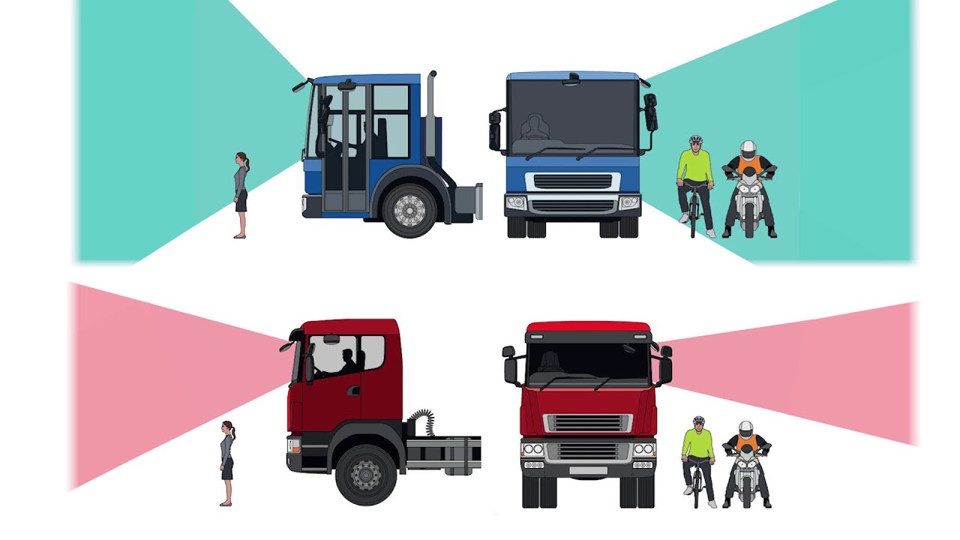Transport for London’s proposed tightening of the Direct Vision Standard risks “scaring people away from the industry”, according to O’Donovan Waste Disposal managing director Jacqueline O’Donovan OBE, due to its overblown requirements.
DVS, introduced in 2019 with enforcement starting in March 2021, seeks to improve drivers’ vision through the cab windows of HGVs above 12 tonnes to prevent collisions caused by limited visibility. It has, according to TfL, reduced fatal collisions where vision is a factor by 75% in the capital.
The latest consultation proposes requiring all trucks over 12 tonnes to have a three-star safety rating (currently one star) or fit a Progressive Safe System to operate in Greater London from October 28, 2024.
“The progressive system is going too wide,” O’Donovan told delegates during a panel discussion at the Road Transport Expo. “We’re scaring people away and we can’t find drivers. Their cabs look like spaceships – they are overloaded, and they go home exhausted.”
She added: “We need to sit around a table with the powers that be and feed back what drivers are saying about the roads. But we are being handcuffed by TfL.”
Jonathan Walker, head of cities and infrastructure policy at Logistics UK, raises fears that other cities could mirror TfL by introducing their own direct vision standards.
“Where London leads, others follow,” he said. “Dame Sarah Storey in Manchester has already kicked off a similar strategy looking at Vision Zero.”
O’Donovan’s training programme puts all HGV drivers onto a bicycle so they can experience the situation to help them pre-empt what cyclists might do.
Steve James, FM Conway senior transport manager, said: “The haulier is always the responsible party; there’s nothing from the cyclist responsibility. We have to do the extra training, take on the extra cost and overload drivers with extra technology.”
Logistics UK is apprehensive about the driver overload and how they will react to the constant beeps and alarms in the cab.
“We have concerns over driver mental health and wellbeing. We have to make the industry attractive to new drivers,” said Walker.
Paul Murray, business unit director at XPO Logistics, lauded the aims of the Vision Zero strategy, adding that its fleet includes 2,500 trucks of three stars and above.
“Drivers are enjoying the kit, but we are looking at welfare packages on the vehicles,” he said. “There is too much kit and it has to be done in conjunction with driver training.”
Logistics UK estimates around 173,000 trucks will need updating by the October 2024 deadline, putting huge financial pressure on operators.
“It will cost £5,500-7,500 per vehicle to bring up to scratch,” said O’Donovan.
An additional concern is the need to regulate retrofit suppliers to ensure their kit is fit for purpose.
Logistics UK is pressing TfL to have clear standards, while O’Donovan said: “Standards have to be written by the people in the industry and critiqued by experts otherwise they won’t work.”
She added: “My drivers say can we get cyclists to not wear black when the clocks go back because we can’t see them, or can they wear one ear bud and not two.”
TfL has indicated that the new review will be in 2028, much to the dismay of the panellists.
“There are mutterings about phase three in 2030 but we haven’t even settled on 2024 yet,” said James.
Hear what the Fleet News at 10 panel of fleet experts had to say about the DVS proposals.





















Login to comment
Comments
No comments have been made yet.